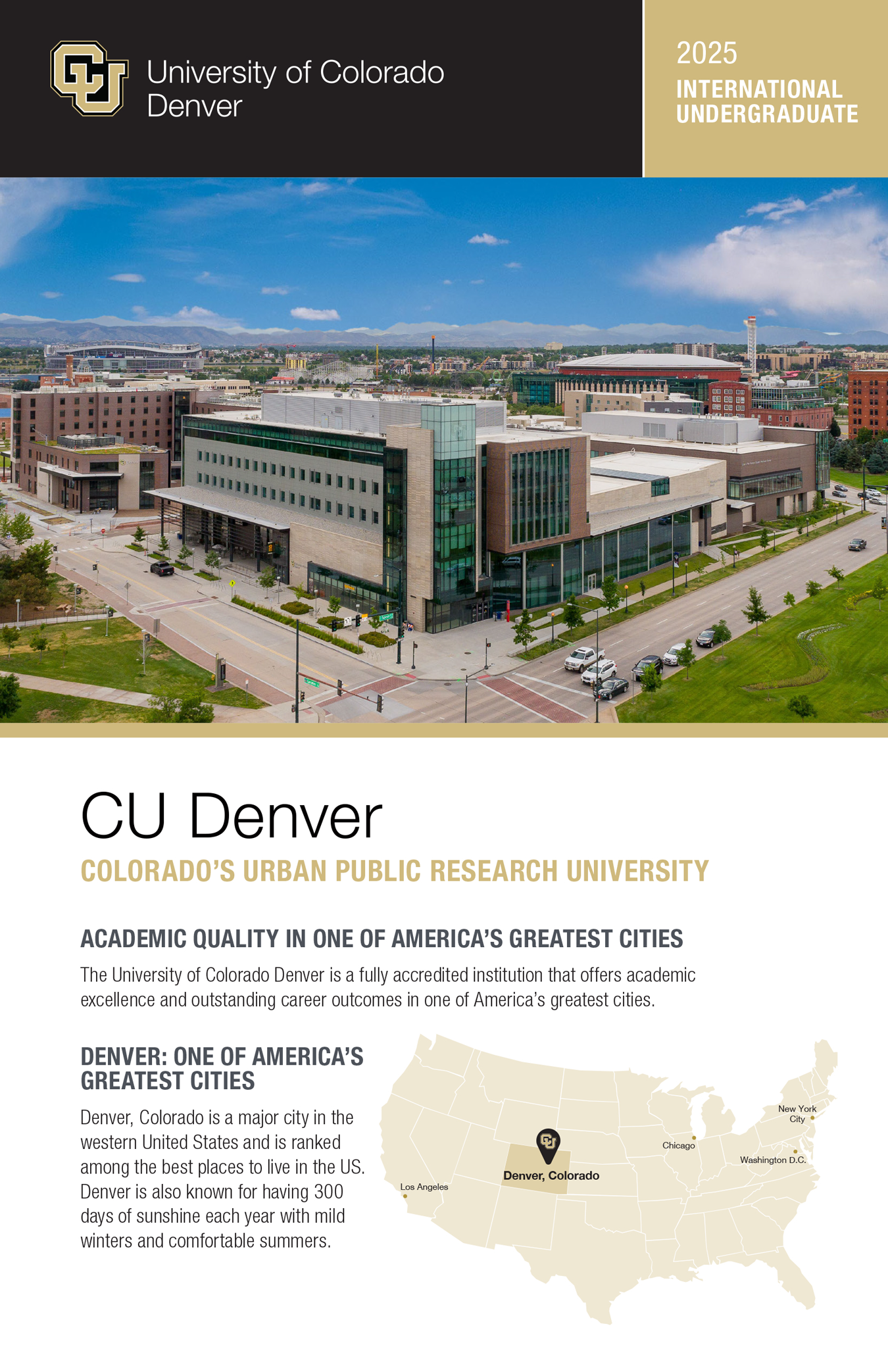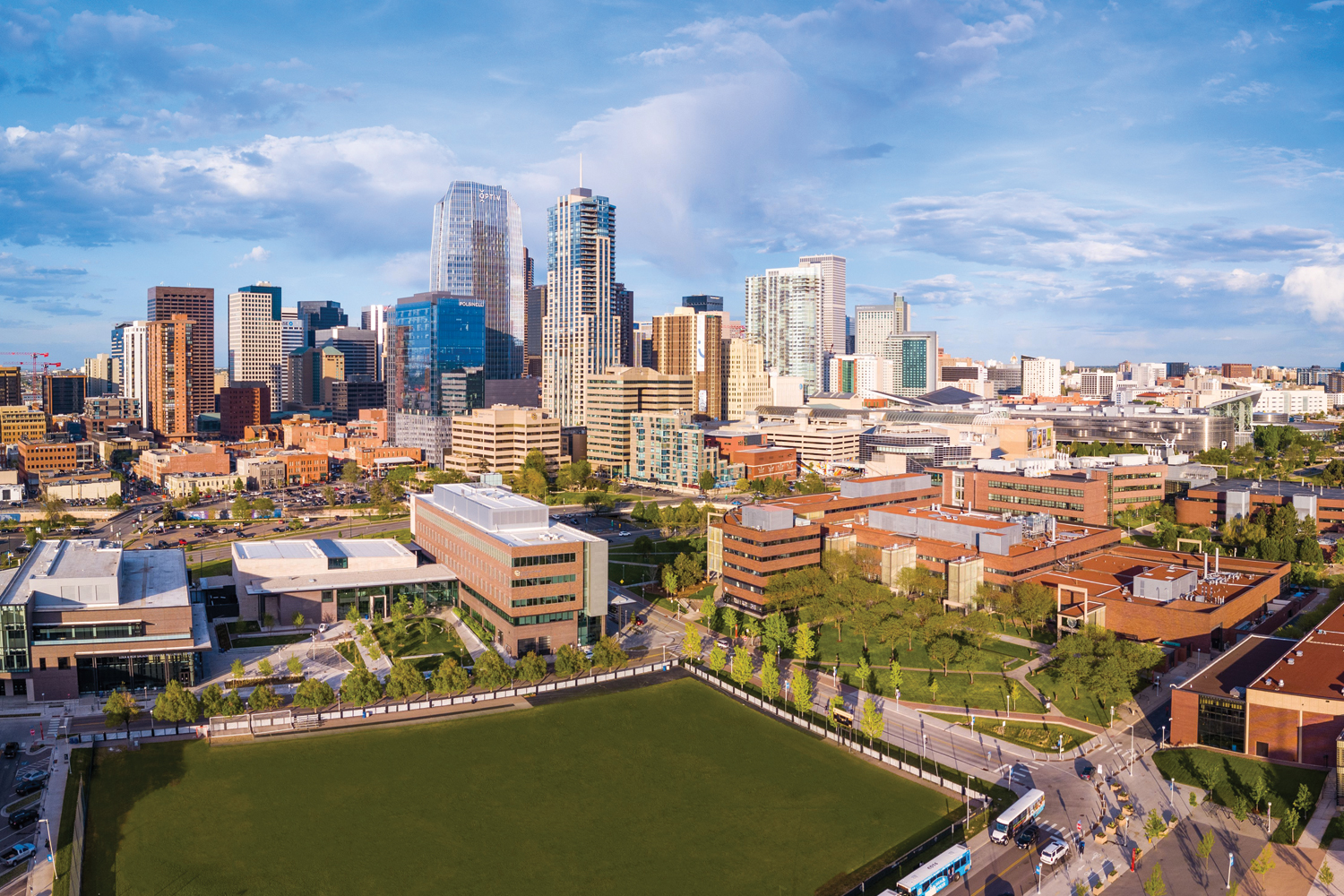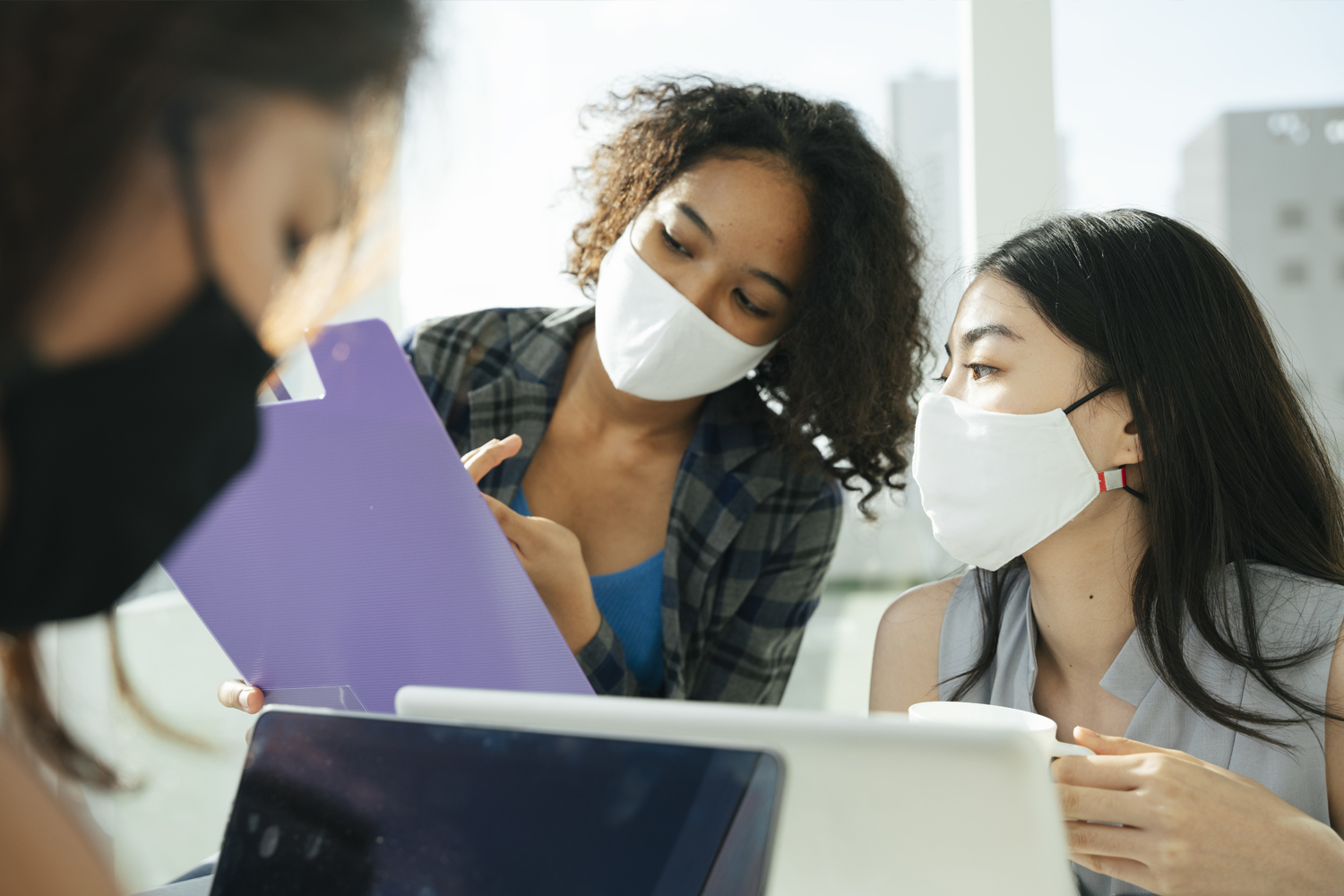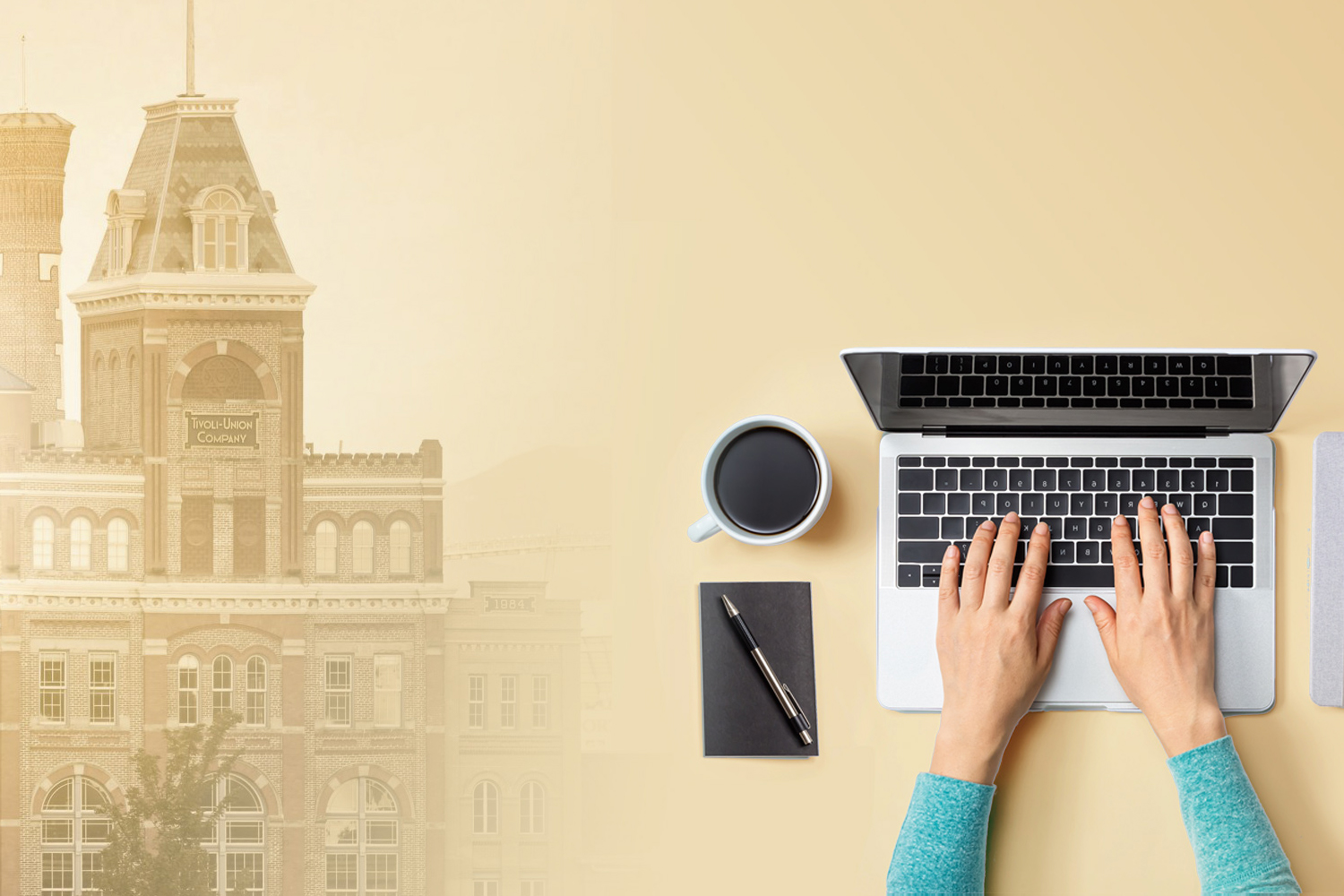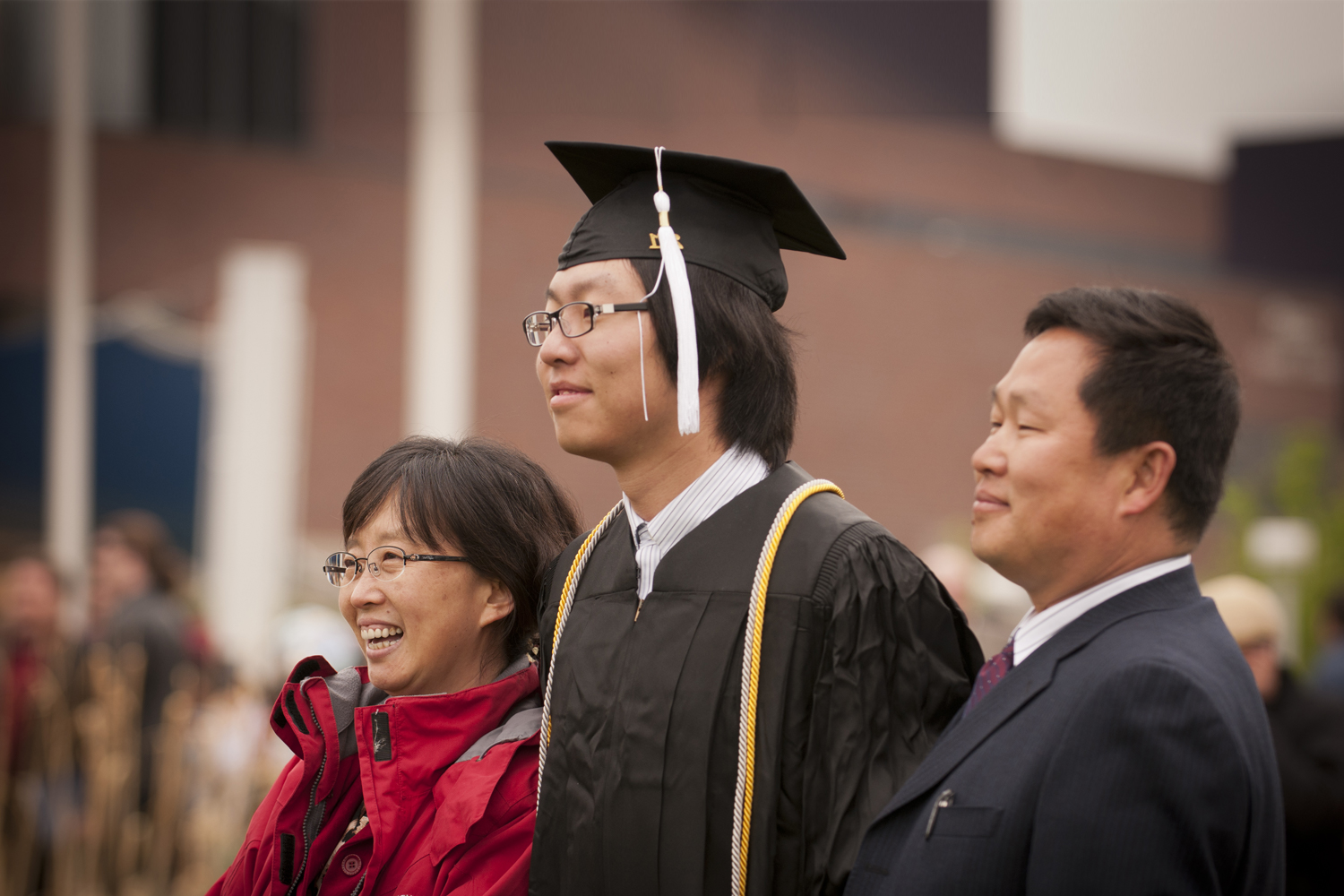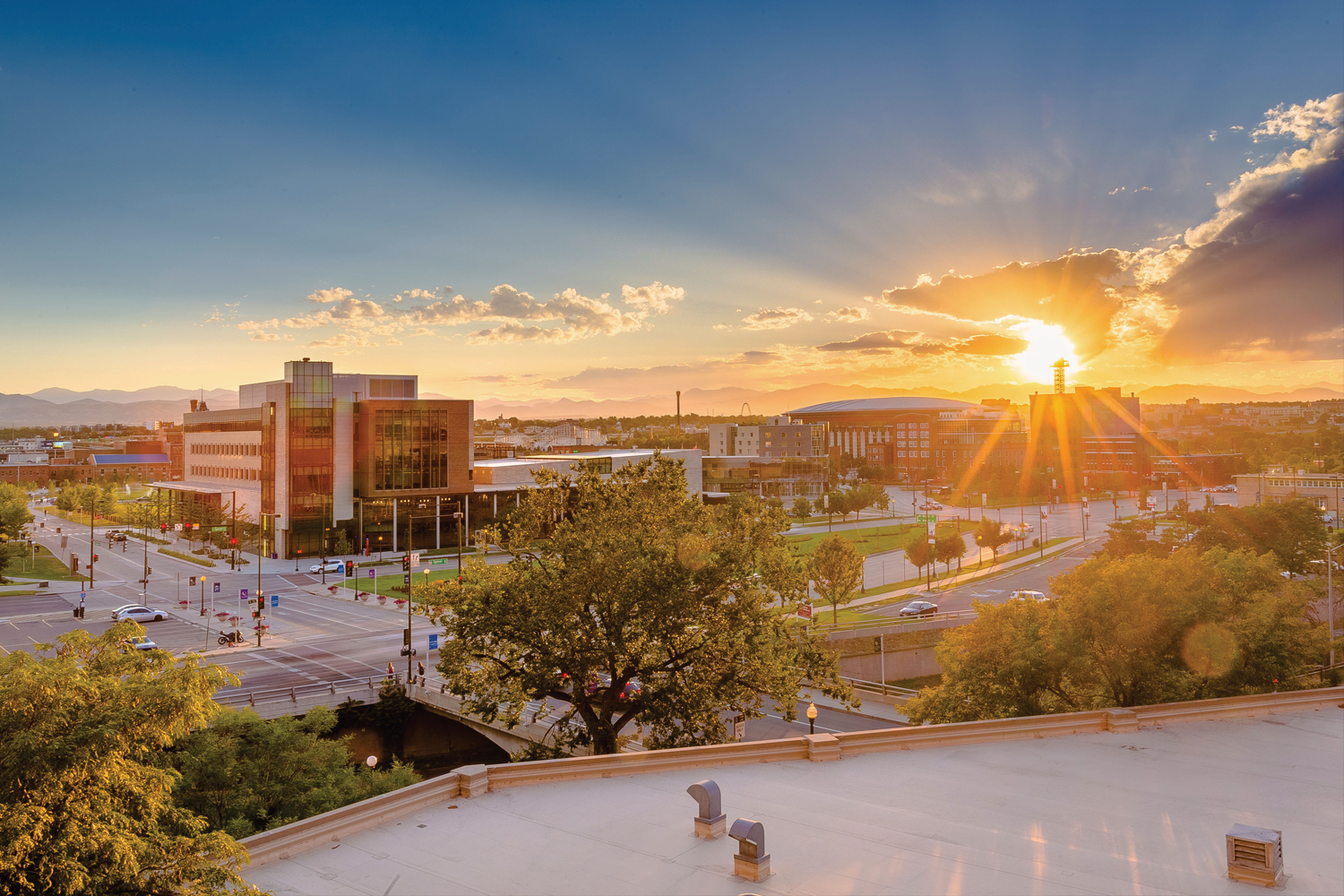American Pre-Health Undergraduates & International Scholars Celebrate ISCORE
Program Collaboration Between CU Denver & CU Anschutz Medical Campus
Dec 11, 2017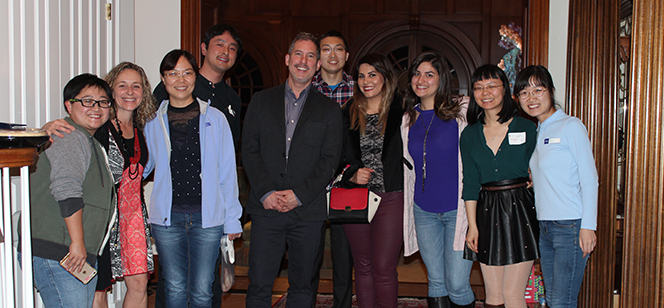
Match the academic eagerness of CU Denver pre-health undergraduates with the abilities of distinguished international scholars at CU Anschutz Medical Campus and what do you get? The ISCORE program. The International Scholar Collaborative Opportunity for Research Exchange (ISCORE) was developed by the Office of International Affairs, the Graduate School, and the College of Liberal Arts and Sciences; it offers a unique, friendly learning environment that teams undergraduate students in pre-health programs at the CU Denver campus with international researchers and scholars at the CU Anschutz Medical Campus to the benefit of both groups.
For the undergraduates, it’s a chance to learn first-hand about the exciting research that’s taking place in labs on the medical campus. For the international researchers, it provides regularly scheduled conversations aimed at enhancing English language skills. This unique cross-cultural environment fosters student success for the undergraduates and supports the international researchers’ effective integration into their labs and into American society.
The ISCORE program received funding support from a Diversity and Excellence Grant through the Office of Diversity and Inclusion, headed by Vice-Chancellor Brenda J. Allen, PhD.
“My ISCORE student partner, Conor Lang, was able to help me improve my English; and I enjoyed learning about American culture,”explained international scholar Dr. Yangyi Yu, PhD, whose home country is China.
Yu and Conor met every Wednesday to discuss advancements in the health sciences field, as well as to have informal conversations about their families, hobbies, and life in Colorado. Conor, who has an interest in medicine and public health, visited the lab where Yu is studying the effects of injuries to joints and is conducting experiments aimed at developing treatments to repair underlying tissue structure. Conor also learned about specialized research, which includes 3-d printing of tissue structures, that can contribute to understanding more about reconstruction of the cervical spine, of femur and tibia bones, knees, and many other applications.
In turn, Yu was able to expand his facility with the English language through discussions with Conor. “We talked about the ways that friends and families hang out together, share meals together, and have fun.” The pair were in hearty agreement on the culinary merits of a favorite Chinese dish, “hot pot”.
Yu observed that many CU Denver students diligently approach their studies and at the same time maintain part-time jobs. He commented on how this increased their time management and life skills.
A Japanese scholar at the School of Dental Medicine, Dr. Kenjiro Nakano, DDS, helped train his ISCORE undergraduate partner, Maral Moradibidhendi, in dentistry methods. Nakano is conducting fluoride analysis of dental products and fluoride release from dental varnish. Conversations with Maral increased Nakano’s proficiency in English in all areas: research, writing, and speaking.
As the Fall program ended, the group gathered together for a feast hosted by Dr. Cristina Cenciarelli, PhD, Special Projects Coordinator, Office of International Affairs, and Dr. Richard Schulick, MD, MBA, Professor and Chair of Surgery. A traditional American Thanksgiving dinner was provided for the guests. The conversation naturally turned to the different holidays that are celebrated by cultures throughout the world.
“The Thanksgiving holiday is very special to Americans, and although Christmas is acknowledged in Japan, the gift exchange is nothing like it is here!” said Dr. Yuki Fujiwara, MD, PhD. He explained that the last day of the year, December 31, is a very important day for families in his home country. Several guests noted the respect shown for the Lunar New Year in China and other Asian countries; celebrations of this event continue to grow in America, too.
Dr. Yi Sun, MD, earned his medical degree and did his residency in surgery in Peking. Sun commented on the friendliness of the people at the university and in Denver, and the value of the university’s cultural and social programs.
Yuki agreed. “You can meet people from many different countries and make great connections through the ISCORE program and through gatherings such as this event.” He added with a smile, “It’s a way to learn, mentor, and to make new friends.”
A forerunner of the ISCORE program began in the 1990’s when Dr. David Kumpe, MD, Professor of Radiology and Diagnostics, was teaching a group of Chinese fellows at the CU Anschutz Medical Campus. The Chinese were experienced interventionalists and were often called upon to use their English language skills to assist with research, engage in presentations, and act as translators. Kumpe’s wife, Dr. Rosemarie Wipfelder Kumpe, PhD, observed that the researchers could benefit from English language instruction, conversational as well as scientific. As a native speaker of German and a physicist, Rosemarie understood the challenges of professional and technical English language acquisition. She volunteered her expertise for several years.
The results were even better than anticipated. The fellows used the English language “beautifully”, according to Kumpe, and strong professional relationships and life-long friendships evolved between the Chinese researchers and the Kumpes.
Kumpe has enjoyed seeing the development of ISCORE and has words of advice to undergraduate science students and international scholars who are considering becoming a part of the program.
“For science students, this is an opportunity to learn in more depth and detail than is available from a classroom, about a different culture, as well as to develop a solid contact for future visits to the researcher’s country. The researchers have a lot of experience in science/medicine and will be an excellent alternative source of advice for the undergraduate.”
To the international researchers, Dr. Kumpe noted, “By getting to know an American who is familiar with Denver, the researcher and family, if present, will have an opportunity to learn more about the city and make a new group of friends.”
Dr. Sangeeta Chakraborty, PhD, Microbiology, who is from India, urges other international post-docs and research associates to consider participating in the ISCORE program.
“There is more to it than just an exchange or development of language skills” said Chakraborty. She likened it to a journey of eight weeks where both partners learn a great deal in terms of communication skills, mentoring skills, and language refinement. “It definitely boosted my personal communications skills— it allowed me to grow.”
“Dilemmas often represent opportunities,” explained John Sunnygard, Executive Director, Office of International Affairs (OIA). OIA works closely with departments at the CU Anschutz Medical Campus to help bring some of the world’s top research scholars to the university. However, many non-native English speakers find language a barrier to sharing their research and fully integrating into the U.S.
“On the other hand, we’ve been struggling for years to develop international opportunities for our undergraduate pre-health students on the Denver campus,” said Sunnygard. Similarly, the Graduate School is committed to encouraging undergraduate research engagement on the Medical Campus and supporting all Post Docs’ career development and success.
OIA built upon its relationships to develop a collaborative model between the campuses. Sunnygard and his team applied for and received a Diversity Award to fund the pilot program. They reached out to the ESL Academy and Learning Resource Center to develop a brief English tutor training program for the undergraduates, and the Graduate School to provide mentor training for the international researchers.
“The result has been a deep rich exchange amongst scientists and aspiring scientists, Americans and international guests at our university.”
LEARN MORE
To learn more about the ISCORE program, contact cristina.cenciarelli@ucdenver.edu, 303.315.0257.
View student ISCORE presentations on a wide variety of scientific research topics.
Discover more:
Office of International Affairs
College of Liberal Arts and Sciences, CU Denver
